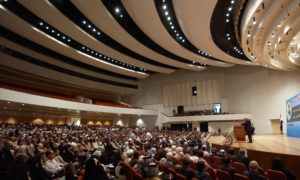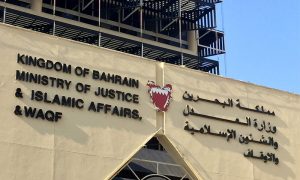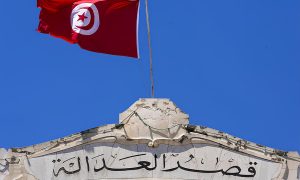The MENA Trans Archives
Welcome to the Middle East and North Africa (MENA) Trans Archives! We are pleased to introduce the first and only open-access database dedicated to transgender rights in the MENA region. Please refer to the map below to explore a comprehensive collection of information on transgender rights in this area. Here, you will find valuable resources such as case law on legal gender recognition, laws on criminalization, healthcare laws and policies, Islamic religious edicts (Fatwas), and country profiles. This convenient hub provides all the information you need to know about the laws, policies, case law, and Fatwas that impact transgender rights in the region!
Have we missed anything? If you have new data to contribute to the database or would like to request a correction, please email us at research@cairo52.com
- Egypt
- Iraq
- Morocco
- UAE
- Syria
- Occupied Palestinian Territories (West Bank and Gaza)
- Qatar
- Tunisia
- Lebanon
- Oman
- Saudi Arabia
- Sudan
- Jordan
- Algeria
- Mauritania
- Libya
- Yemen
- Kuwait
- Bahrain
- Egypt
- Iraq
- Morocco
- UAE
- Syria
- Occupied Palestinian Territories (West Bank and Gaza)
- Tunisia
- Lebanon
- Oman
- Saudi Arabia
- Sudan
- Jordan
- Qatar
- Algeria
- Mauritania
- Libya
- Yemen
- Kuwait
- Bahrain
- Egypt
- Iraq
- UAE
- Lebanon
- Oman
- Saudi Arabia
- Jordan
- Kuwait
- Egypt
- Qatar
- Iraq
- UAE
- Syria
- Tunisia
- Lebanon
- Jordan
- Algeria
- Kuwait
- Bahrain
- Egypt
- Iraq
- UAE
- Saudi Arabia
- Jordan
- Libya
- Kuwait
- Occupied Palestinian Territories (West Bank and Gaza)
- Egypt
- Kuwait
Given the rigid socio-religious heteronormative structures that inform law and policy in the region, it is not surprising that terms such as gender, transgender, intersex, sex reassignment or gender-affirming healthcare are not officially recognized. Instead, we briefly gloss over key terms in laws, policies, Fatwas, and case laws. The following terms may be encountered:
Sex Identity Disorder (āḍṭrāb ālhwyة ālǧnsyة): Instead of gender identity disorder, the term “gender” is replaced with “sex,” reflecting the emphasis placed by the judiciary and others in the region on biological sex rather than gender identity. In official circles, sex is perceived as a fixed biological concept, while gender identity is seen as fluid and not acknowledged.
Sex Change/Transition (tġyr ālǧns/ tḥwl ālǧnsy): These are the official terms used to refer to gender-affirming healthcare for transgender individuals in legal cases. The use of the term “change” reflects the Fiqh rule that prohibits altering Allah’s creation. Therefore, referring to someone as undergoing a “sex change” implies that the procedures are not permissible from an Islamic Sharia perspective.
Sex Correction (tṣḥyḥ ālǧns): In contrast to sex change, sex correction is primarily used to describe sex reassignment surgeries undergone by intersex individuals. People in positions of power within law and policy in the region view intersex individuals as having a biological and medical necessity to undergo treatments that result in changing their sex. In contrast, transgender people are considered to have a mental illness that does not constitute a medical necessity for such procedures. The term “correction” instead of “change” is also symbolic, as changing Allah’s creation is prohibited, but correcting it for medical reasons is accepted.
Transsexual (mtḥwl ǧnsyā): Similar to the case with gender identity disorder, the term “transgender” is not used. Instead, the term “transsexual” is employed to describe a person transitioning from one binary sex to another rather than someone who develops a gender identity outside of the binary.
Someone with Corrected Sex (mṣḥḥ al-ǧns): This term is commonly used in the region to describe intersex individuals, in addition to the term Khuntha.
Mukhannath (Pl. Mukhannathun): Defined as “men who take on the role of women” or “men who imitate women in their dressing, talking, and attitude.” It is mainly used in Islamic texts to describe individuals who may be transgender.
Mustrijla (Pl. Mustrijlat): The female version of the Mukhannath. Mustrijlat are “women who take on male clothing, talk, and attitude.”
Khuntha (Pl. Aẖnāṯ): This term encompasses a range of definitions as presented in Arabic dictionaries, highlighting the complex nature of the term. These definitions include individuals who are born with both male and female reproductive organs, individuals who possess ambiguous sexual characteristics regarding their reproductive origins, and individuals who lack male or female genitalia and urinate through a distinct opening.
At present, six MENA countries – Egypt, Saudi Arabia, Kuwait, Oman, UAE, and Jordan – have implemented bans on gender-affirming healthcare for transgender individuals. These bans were enacted by incorporating Islamic Fiqh into their medical laws and policies. Consequently, these policies differentiate between treatments for intersex individuals, referring to it as “sex correction,” and treatments for transgender individuals, referring to it as “sex change.” While the former is permitted, the latter is prohibited. The only exception is Iraq, which has a clear policy that recognizes “transsexualism” as a valid condition for undergoing gender-affirming healthcare, subject to approval by a psychiatric committee. However, this policy was introduced in 2002, and its implementation has been challenging to assess due to the American invasion in 2003, subsequent violence, political instability, and deterioration of government services. In general, access to gender-affirming healthcare in the MENA region is limited to Do-It-Yourself Hormonal Replacement Therapy. Some countries, such as Egypt and Lebanon, have a few private underground clinics or public facilities that can offer certain surgical interventions. Nonetheless, the ban on gender-affirming healthcare, coupled with the scarcity of available services, significantly restricts transgender individuals’ ability to access adequate, comprehensive, and affordably priced gender-affirming healthcare.
There is a legislative vacuum regarding legal gender recognition in the MENA region. Most countries have general laws or policies that allow citizens to correct their civil registry entries through either administrative or judicial processes. However, these general laws and policies do not specifically address transgender people. As a result, transgender individuals in most countries have to undergo lengthy, mentally exhausting, and sometimes expensive judicial processes to attempt to obtain legal gender recognition. Since changing one’s name and gender is considered a civil status issue and there is no codified positive law on this matter, judges typically rely on a combination of Islamic Sharia, social norms, and regional and international legal precedents to make judgments. Out of the 19 cases identified in this database, 14 cases, or 73.67%, had an unfavorable outcome, with the plaintiffs’ requests for legal gender recognition being rejected. This overwhelming majority establishes an overall legal precedent of rejecting such requests for transgender individuals. For intersex individuals, the process can be simpler in two countries in the region, Morocco and Saudi Arabia, as they have clear legal provisions allowing for legal gender recognition through administrative processes. However, it can still be complicated for an intersex person if their physical characteristics do not align with the gender they wish to correct in their civil registry entries. For instance, in Case No 38291/2020 in Tunisia, the Court of First Instance in Medin refused to grant legal recognition to an intersex child based on the request of the child’s parents. This decision was made following inconclusive determinations by medical committees regarding the child’s binary sex, as they advised against hastily assigning a male or female gender until the child’s actual binary sex characteristics fully manifest. Read the following publication to know more: The MENA Trans Archives Series: Understanding the Judicial Directions & Practices on Legal Gender Recognition in the Middle East and North Africa Case Law.
Islamic jurisprudence (Fiqh) places significant emphasis on the cisgender, heterosexual, biological binary. Many of its rules regarding marriage, fasting, war, governance, and inheritance are based on the belief that Allah created two sexes, each with distinct duties and obligations. Throughout early Islamic history, there were instances of interactions with individuals who identified outside of the gender/sex binary, such as Mukhannathun (effeminate men) and Khuntha (intersex individuals). Primary scholars regarded these social identities as biologically within the binary. Consequently, their actions were deemed Haram (not permitted), and it was asserted that they should repent and return to the roles assigned to their birth sex. In the case of individuals with biological intersex traits, they were seen as Allah’s creation, and their existence was not to be objected to. As a result, specific rules and methods were developed to identify them within the binary, such as examining the number of ribs or the location where they urinate.
In modern times, as gender-affirming healthcare for both intersex and transgender individuals became more available, scholars extended the old Fiqh principles to encompass these new medical procedures. Two Fiqh principles were primarily examined: “Allah created us in our best form, and changing Allah’s creation is Haram,” and “Necessities allow what is otherwise prohibited.” When applying these principles to transgender and intersex individuals, scholars agreed that both groups have “illnesses” – mental for transgender individuals and biological for intersex individuals. Transgender individuals were considered biologically within the binary and only had a mental condition, so therapy was considered the appropriate treatment for them rather than surgery. On the other hand, since intersex individuals were outside the biological binary, surgeries were seen as assisting them in obtaining their correct socio-religious binary roles, thereby being deemed a medical necessity.
The majority of the Fatwas (15 out of 17) in the database followed this logic, recognizing only biological and medical conditions as necessary, allowing for an exception to the prohibition of changing Allah’s creation. Two Fatwas, notably one from Iran’s Khomeini, also recognized “Gender Identity Disorder” as a valid medical condition warranting gender-affirming healthcare. Islamic Fiqh can be observed in both legal gender recognition precedents and has been codified into law and policy across the MENA region. However, these laws primarily prohibit gender-affirming healthcare for transgender individuals while permitting it for intersex individuals, often with a focus on conversion therapy as the sole “cure” for transgender individuals. Read more: The MENA Trans Archives Series: Understanding Modern Fiqh on Intersex and Transgender People in the Middle East and North Africa Region
While no country in the region explicitly criminalizes being transgender, countries in the area often apply morality-based legal articles, such as anti-sex work, sodomy, and public order laws, to de facto criminalize transgender individuals and their expression. Additionally, specific laws in countries like Sudan, Oman, UAE, Kuwait, and Lebanon target “crossdressing,” “indecent clothing,” and “imitating the opposite sex,” which more explicitly criminalize non-binary gender expression and directly impact the ability of transgender individuals to express themselves in public spaces. Furthermore, in 2023, parliamentarians from Iraq and Kuwait aimed to introduce new laws that would explicitly criminalize being transgender and accessing gender-affirming healthcare. These proposed laws would make it illegal to undergo hormonal replacement therapy, for example, or to express oneself in any way that deviates from the social expectations of one’s assigned sex at birth. As of May 2024, these two laws are still under discussion.








